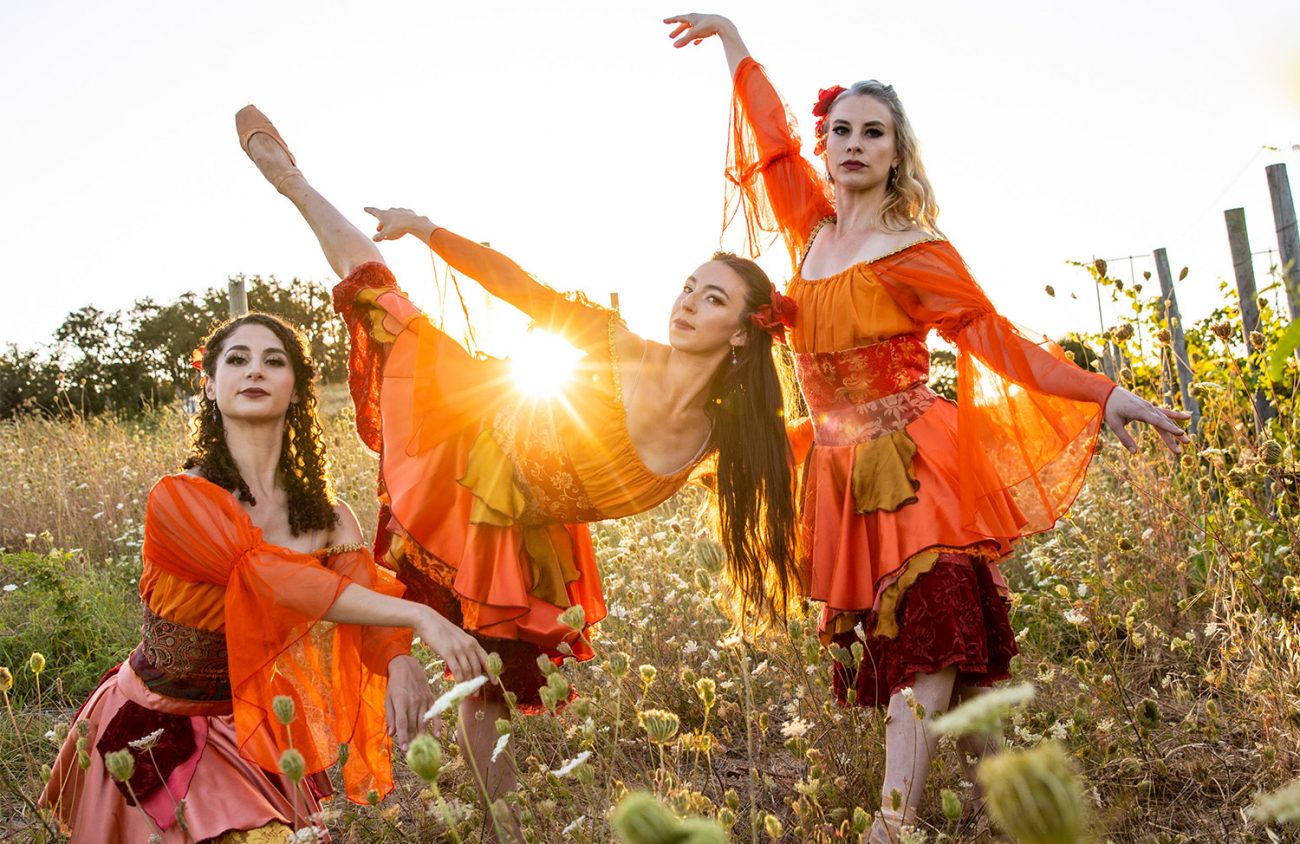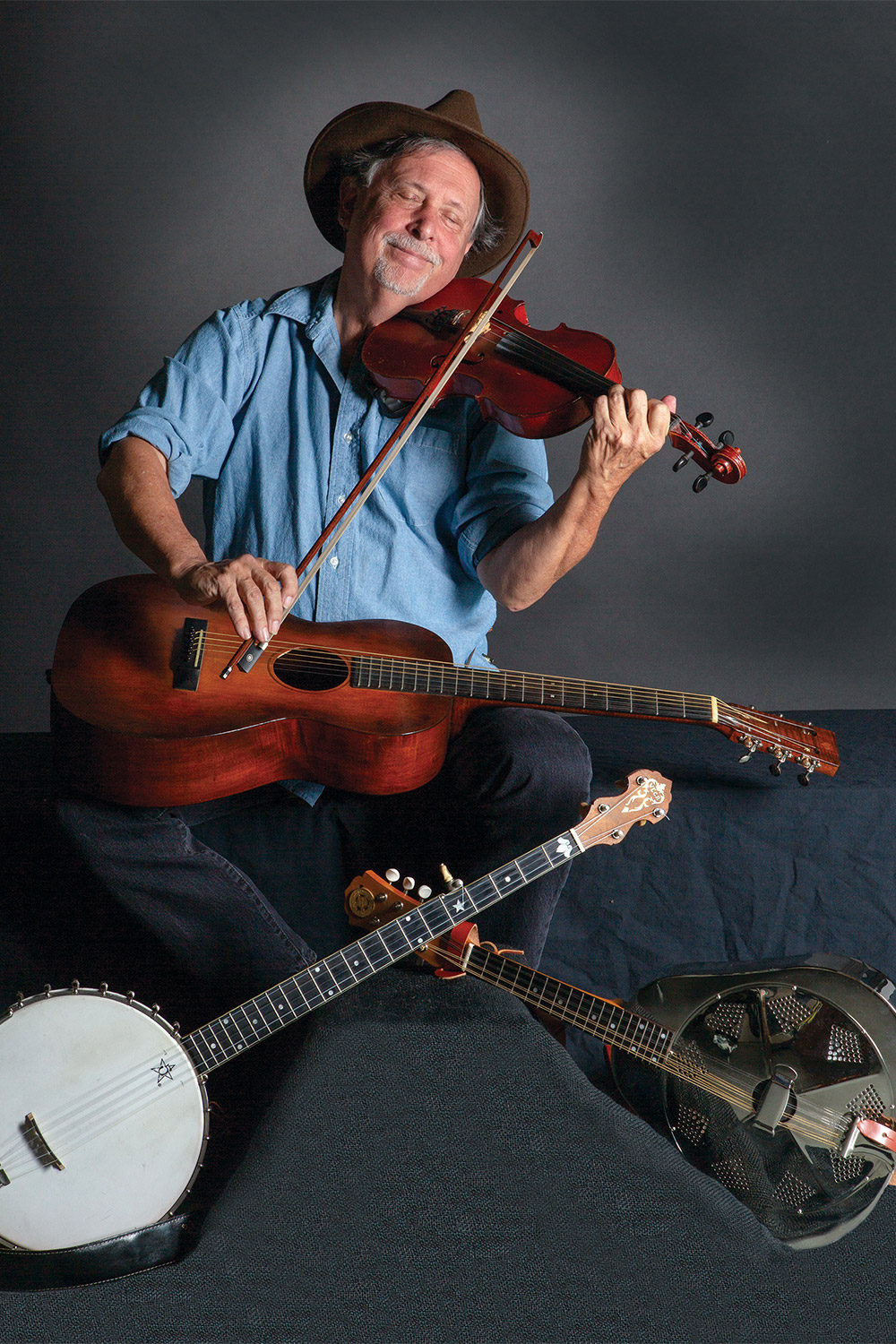Live performance all but died in and around Eugene more than six months ago. That’s when the COVID-19 pandemic began to take hold in Oregon, and Gov. Kate Brown issued the state’s first shutdown order, barring gatherings of more than 250 people. Since then, the Hult Center has been dark, as have such performance venues as Very Little Theatre, Oregon Contemporary Theatre, Actors Cabaret of Eugene, Cottage Theatre and The Shedd Institute for the Performing Arts.
But as fall beckons, performing groups are cautiously looking for ways to connect with live audiences, whether that means performing outdoors while the weather is still suitable or in front of sparse audiences spread out with social distancing in large concert halls.
While this fall’s arts calendar won’t look remotely like anything from the recent past, it tentatively includes outdoor ballet performances by Ballet Fantastique, a few live concerts at The Shedd and as many as 10 performances — to small, socially distanced audiences — of Eugene Ballet’s The Nutcracker at the Hult Center in December. Later in the year, if all goes well, we might even get to see a very small play in front of a very small, socially distanced audience at Oregon Contemporary Theatre.
As it does for many ballet companies around the country, The Nutcracker usually provides a major source of revenue for Eugene Ballet, which has been hit hard by the shutdown while it is in the middle of constructing a new building. “Our main product is something we can’t do anymore,” ballet spokeswoman Kylie Keppler says. “And it’s certainly inconvenient we are trying to finish a brand-new building during the pandemic. But we are not ready to close our doors.”
Ballet Fantastique, the smaller and younger of Eugene’s two professional ballet companies, is doing a series of outdoor performances in early fall — most of which are already sold out, says Hannah Bontrager, executive director of the company.
“There is some scrappy part of BFan always looking to change challenge into opportunity,” Bontrager says.
Unable to perform its regular season, BFan is doing a series of small outdoor performances at a winery and at a golf course to audiences of a few dozen. The shows are designed, Bontrager says, to allow the audience to enjoy ballet, but at a safe distance. “You don’t have to touch anyone or anything all night,” she says.
BFan is also working with the Hult Center to schedule a more-conventional indoor performance for as many as 200 people the week of New Year’s Eve. That, she says, will depend on what state and local health restrictions are in place at the beginning of winter.
The end of live performance here came suddenly with the first statewide health restrictions last spring.
The last event held at the Hult Center in front of a live audience was on March 8, when Ballet Fantastique performed Dragon and the Night Queen.
Within a week, as infections from the new virus spread, live performance shut down in a heartbeat. At the conclusion of a final dress rehearsal for Eugene Opera’s Tosca on Thursday, March 12, the cast and crew learned the production would not, after all, be opening at the Hult the following night — or ever. Similarly abrupt cancellations that same weekend nixed openings of Little Women at Very Little Theatre and Sunset Boulevard at Actors Cabaret after dress rehearsals but before opening night.
Since then, local stages have been empty, and arts organizations’ budgets have been strained. Attempts to connect with audiences online via Zoom or other platforms have generated responses that are more dutiful than enthusiastic.
Live performance, it turns out, wants to be live.
“We’ve held off cancelling everything, and rolling over and dying, and observed a rolling rebooking strategy,” says Jim Ralph, the executive director at The Shedd, which shut down or postponed its calendar of events through the spring. “Currently all of our presented shows through December are rescheduled into next year; some are on their third reschedule.”
The Shedd, though, is planning a few concerts this fall, Ralph says, some with multiple performances to accommodate smaller nightly audiences with social distancing. The Emerald City Jazz Kings are tentatively set to perform Diga Diga Doo: The Dorothy Fields Songbook Oct. 15, 16 and 18, and are to return Dec. 10 and 13 with All Is Bright: Christmas at The Shedd 2020. Meanwhile, Chico Schwall’s American Roots is to perform an evening program called Skiffle and the rise of British Rock, 1955-60 on Oct. 21, and singer Siri Vik is booked to perform a wide-ranging program of songs, Save for Later, on Nov. 6, 7 and 8.
Up in the air are such programs as Shedd Theatricals and Oregon Festival of American Music, both postponed to better times.
Like Eugene Ballet, The Shedd was in the middle of a construction project when the pandemic closed off its ticket revenue. The $8 million renovation includes remodeling and modernizing the entire Shedd complex, with its three performance spaces, administrative offices and enough classrooms for a music school that continues to operate, but with smaller classes than in the past.
Some of the work has been finished and some has been put on hold, Ralph says.
“We managed to complete our music school wing remodel in one piece, more or less, and we are doing a few additional smallish remodeling projects before putting off the Completing The Transformation campaign until slightly better times.”
Despite the pandemic, Ralph says, The Shedd has remained afloat financially.
“We’re financially covered through December with special government and private grants, existing pledges and ongoing gifts,” he says. “And no one has gotten sick.”
Don’t expect to see much theater this fall. Nothing for a live audience has been announced by Actors Cabaret, Cottage Theatre, Radio Redux or Very Little Theatre, which has dubbed its fall initiative “Virtual Little Theatre.”
Cottage Theatre, which has been completely shut down since spring, is using the hiatus to finish raising money to complete a $2.35 million theater renovation that will add 50 seats to its current capacity of 145. It has less than $500,000 to go, says Susan Goes, executive director of the theater.
The only likely live performance might be at Oregon Contemporary Theatre, and that one’s a long shot. “We don’t anticipate producing in the fall,” begins Craig Willis, artistic director at OCT.
OCT instead will offer what it has been doing since the shutdown: live streamed workshops on play development and acting in addition to its Northwest 10 Festival of new 10-minute plays. “We’ll be returning to live performance as soon as it’s safe and practical for patrons, artists and our staff,” Willis says.
The good news? OCT might be able to return to some version of live performance before January. “There’s still an outside chance of something live before the end of the year, and we’ll let you know when and if that develops further,” he says.
When it’s possible to return to live performances, Willis says, he anticipates much smaller productions in front of smaller audiences. OCT’s theater normally seats 168; with social distancing, that number drops to 46, Willis says. Shows in front of such reduced audiences will likely use only one or two actors.
Producing live theater during the pandemic may be difficult financially, but Willis says it’s not impossible. OCT, which is a nonprofit organization, gets 55 percent of its revenue from ticket sales and tuition, he says. While he doesn’t expect shows to make money, they should cover their own costs. “Smaller cast productions mean lower costs, such that it may still remain possible for us to cover production costs with reduced seating capacity.”
Willis says he expects the pandemic to affect theater here and around the world for years to come. He cites Joseph Haj, the artistic director of the Guthrie Theatre in Minneapolis and a frequent director at the Oregon Shakespeare Festival.
Haj, Willis says, “expects that it may take four or more years for the Guthrie to return to the level of pre-pandemic operations.”
Nevertheless, Willis takes a long view of the effects of the pandemic on theater in general.
“There will be lingering changes, but I don’t believe there will be permanent changes,” he says. “Theater has been with us for 4,000 years in the West and probably longer in the East. During that time it has survived devastating disruption — and always eventually returned intact.”

